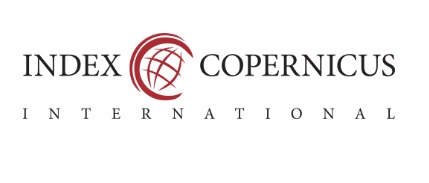Building Memorable Experiences: The Influence Of Authenticity And Experiencescape On Me Morable Experiences And Re-Visiting Intentions
Abstract
Aim: This study aims to determine the effect of authenticity and experiencescape on the intention to revisit natural tourist attractions in Bayumas Regency, namely Curug Jenggala, Curug Telu, Curug Pinang, and Pagubugan Melung with effective experience as mediation.
Methodology: The sample in this study was taken using a nonprobability sampling technique with a purposive sampling method. The number of respondents was 120 respondents from the population of visitors to natural tourist attractions in Banyumas Regency.
Findings: Using SEM analysis with AMOS software showsnthe results that authenticity has a positive effect on memorable experiences, experiencescape has a positive effect on memorable experiences, memorable experiences do not have a positive effect on revisit intentions, authenticity has a positive effect on revisit intentions, experiencescape does not have a positive effect on revisit intentions, experiencescape does not have a positive effect on revisit intentions, memorable experiences are unable to mediate the influence between authenticity and revisit intentions, and memorable experiences are also unable to mediate the influence between experiencescape and revisit intentions.
Implications/Novel Contribution: This study can be implied for managers of natural tourist attractions in increasing revisit intentions.
References
Ali, F., Hussain, K., & Ragavan, N. A. (2014). Memorable customer experience: Examining the effects of customers experience on memories and loyalty in Malaysian resort hotels. Procedia-Social and Behavioral Sciences, 144, 273-279.
Anam, M. S., Yulianti, W., Fitrialoka, T., & Rosia, R. (2021). Faktor-faktor yang memengaruhi revisit intentiondi daya tarik wisata waduk malahayu. Jurnal Destinasi Pariwisata, 9(2), 337-347.
Chen, C.-F., & Chen, F.-S. (2010). Experience quality, perceived value, satisfaction and behavioral intentions for heritage tourists. Tourism Management, 31(1), 29-35.
Deveci, F. G., & Yıldız, T. (2024). Research on the evaluation of hotel customers’ citizenship behaviors in the experiencescape. Dokuz Eylül Üniversitesi ˙I¸sletme Fakültesi Dergisi, 25(1), 41–70. doi:https://doi.org/10.24889/ifede.1354888
Dolcos, F., & Cabeza, R. (2002). Event-related potentials of emotional memory: Encoding pleasant, unpleasant, and neutral pictures. Cognitive, Affective, & Behavioral Neuroscience, 2(3), 252-263.
Hair Jr, J. F., Matthews, L. M., Matthews, R. L., & Sarstedt, M. (2017). PLS-SEM or CB-SEM: Updated guidelines on which method to use. International Journal of Multivariate Data Analysis, 1(2), 107-123.
Istiawan, B., & Nugraha, S. B. (2022). Unsur-unsur yang mendukung pengembangan desa wisata melung kecamatan kedungbanteng dan kesesuaiannya terhadap rencana tata ruang wilayah kabupaten banyumas. Geo-Image Journal, 11(2), 182-188.
Jacoby, J. (2002). Stimulus-organism-response reconsidered: An evolutionary step in modeling (consumer) behavior. Journal of Consumer Psychology, 12(1), 51-57.
Kim, J.-H. (2018). The impact of memorable tourism experiences on loyalty behaviors: The mediating effects of destination image and satisfaction. Journal of Travel Research, 57(7), 856-870. doi:https://doi.org/10.1016/j.ijhm.2018.06.010
Kolar, T., & Zabkar, V. (2010). A consumer-based model of authenticity: An oxymoron or the foundation of cultural heritage marketing? Tourism Management, 31(5), 652-664. doi:https://doi.org/10.1016/j.tourman.2009.07.010
Mappanyompa, M., Mustopa, A., Rifai, M., Halik, H., Marzuki, M., Faisal, F., . . . others (2024). Pendidikan agama islam. Yayasan Tri Edukasi Ilmiah.
Martiarini, R., et al. (2017). Strategi pengembangan desa wisata melalui pemberdayaan masyarakat desa ketenger baturraden. Unpublished doctoral dissertation, IAIN.
Meng, B., & Cui, M. (2020). The role of co-creation experience in forming tourists’ revisit intention to home-based accommodation: Extending the theory of planned behavior. Tourism Management Perspectives, 33, 100581. doi:https://doi.org/10.1016/j.tmp.2019.100581
Miftah, N. A. (2023). Analisis pengembangan sektor pariwisata pada desa wisata kemawi kecamatan somagede kabupaten banyumas. Unpublished doctoral dissertation, UIN. Prof. KH Saifuddin Zuhri.
Nunes, J. C., Ordanini, A., & Giambastiani, G. (2021). The concept of authenticity: What it means to consumers. Journal of Marketing, 85(4), 1-20. doi:https://doi.org/10.1177/0022242921997081
Oh, H., Fiore, A. M., & Jeoung, M. (2007). Measuring experience economy concepts: Tourism applications. Journal of Travel Research, 46(2), 119-132.
Park, S., Hwang, D., Lee, W. S., & Heo, J. (2020). Influence of nostalgia on authenticity, satisfaction, and revisit intention: The case of Jidong mural alley in Korea. International Journal of Hospitality & Tourism Administration, 21(4), 440-455.
Pizam, A., & Tasci, A. D. (2019). Experienscape: expanding the concept of servicescape with a multi-stakeholder and multi-disciplinary approach (invited paper for ‘luminaries’ special issue of international journal of hospitality management). International Journal of Hospitality Management, 76, 25-37.
Ramdani, M. S., & Ernawadi, Y. (2023). Faktor-faktor yang mempengaruhi revisit intention wisatawan kawah putih. EKOMBIS REVIEW: Jurnal Ilmiah Ekonomi dan Bisnis, 11(2), 1293-1304.
Ramkissoon, H., & Uysal, M. (2010). Testing the role of authenticity in cultural tourism consumption: A case of Mauritius. Tourism Analysis, 15(5), 571-583.
Rasoolimanesh, S. M., Seyfi, S., Hall, C. M., & Hatamifar, P. (2021). Understanding memorable tourism experiences and behavioural intentions of heritage tourists. Journal of Destination Marketing & Management, 21, 100621. doi:https://doi.org/10.1016/j.jdmm.2021.100621
Rusdianti. (2024). Pengaruh electronic word of mouth (e-wom), fasilitas, dan lokasi terhadap minat kunjungan ulang wisatawan. , 1–77.
Shafieizadeh, K., Alotaibi, S., & Tao, C.-W. W. (2021). How do authenticity and quality perceptions affect dining experiences and recommendations of food trucks? The moderating role of perceived risk. International Journal of Hospitality Management, 93, 102800.
Taylor, J. P. (2001). Authenticity and sincerity in tourism. Annals of Tourism Research, 28(1), 7-26.
Tosun, C., Dedeoglu, B. B., & Fyall, A. (2015). Destination service quality, affective image and revisit intention: ˘The moderating role of past experience. Journal of Destination Marketing & Management, 4(4), 222-234.
Zhang, T., Chen, J., & Hu, B. (2019). Authenticity, quality, and loyalty: Local food and sustainable tourism experience. Sustainability, 11(12), 3437. doi:https://doi.org/10.3390/su10023437
Zhou, G., Chen, W., & Wu, Y. (2022). Research on the effect of authenticity on revisit intention in heritage tourism. Frontiers in Psychology, 13, 883380.

This work is licensed under a Creative Commons Attribution-NonCommercial 4.0 International License.












.png)










